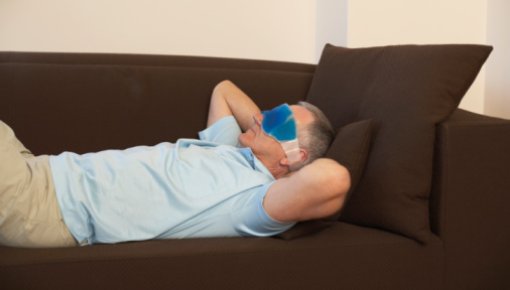I didn't know what migraines were back then
I went to see a neurologist. When I described my symptoms to him, he said that I had just described the textbook symptoms of a migraine.
I didn’t really know what “migraines” were back then. The doctor explained it to me. Back then, there weren’t many medications for migraines. The only things you could do was take painkillers and medicine for nausea, make changes to your own lifestyle, and try to relax a lot.

